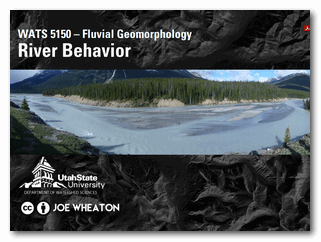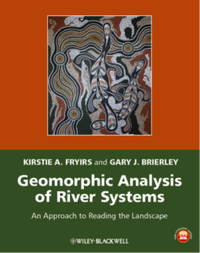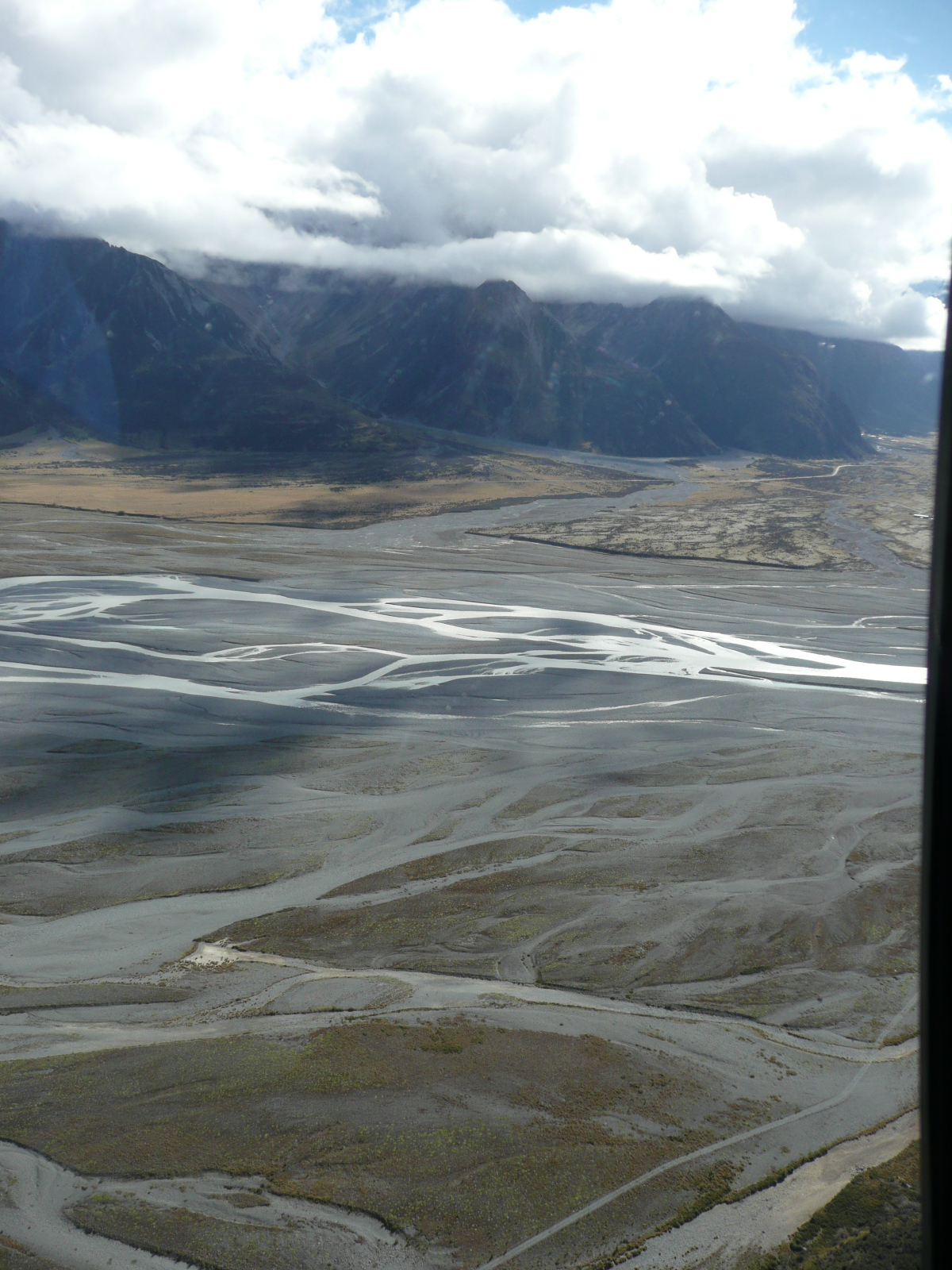See Corresponding Assignment
Background and why we're covering it
This chapter focuses on characterizing what the normal range of adjustments from geomorphic processes, and how distinct river styles have a characteristic suite of such mechanisms of adjustments (e.g. avulsions, incision, thalweg shift, bar development, lateral migration, etc.). Following on from a chapter recognizing the diversity of river types (styles), we now have a basis for developing expectations about both the form (character) and processes (behavior) shaping a riverscape.
Learning Outcomes
- LO 3. Apply principles of geomorphic analysis to a diversity of riverscapes.
- LO 7. Gain an appreciation of how geomorphic processes of erosion, deposition transport and storage of sediment shape topography and create, maintain, sculpt and destroy distinctive landforms.
Resources
River Behavior
Slides

Lecture Slides - Module 11
River Behavior
Other Resources
Corresponding Chapter in Course Text

From: Fryirs KA, Brierley GA. 2013. Geomorphic Analysis of River Systems: An Approach to Reading the Landscape, First Edition. Blackwell Publishing Ltd.: Chichester, U.K.
This module focuses on: CHAPTER ELEVEN: River behaviour
